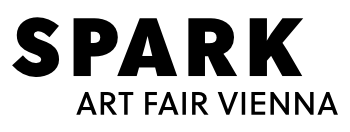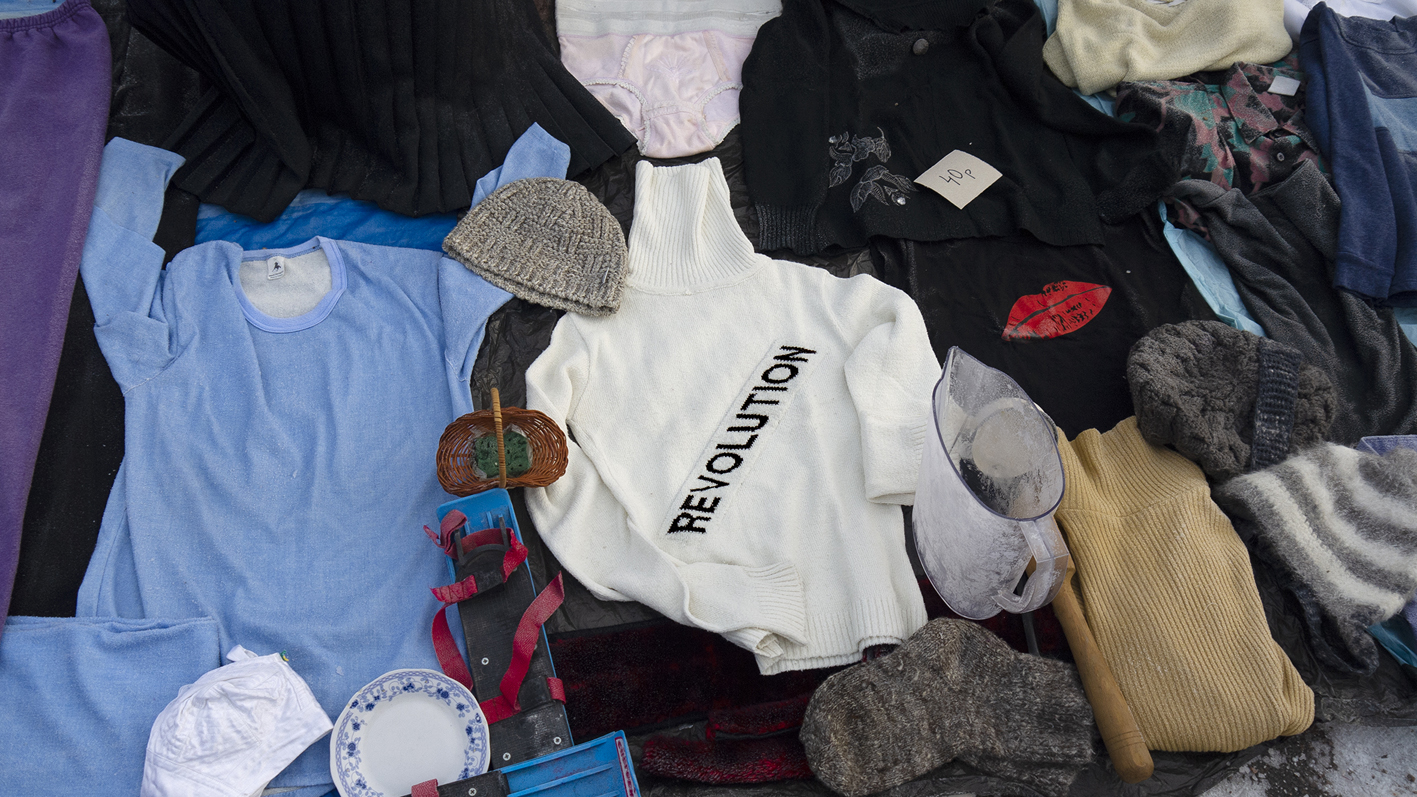Galerie Johann Widauer
Biography
Anna Jermolaewa was born and grew up in Leningrad, USSR. At the age of seventeen, she became one of the original members of Democratic Union, the first political opposition party in the Soviet Union. The party’s statute declared their main objective: the “liquidation of the totalitarian state.” Anna and her husband, the Ukrainian poet Vladimir Yaremenko, and Artem Gadasik published the party’s illustrated weekly, “Democratic Opposition,” printed on photo paper in their bathroom.
In 1989, after a year and a half of printing, a criminal case was opened against the three, who were charged with causing anti-Soviet agitation and spreading propaganda, after publishing a poem by Yaremenko. The KGB interrogated approximately three-hundred people and conducted over a dozen searches, seizing manuscripts.
Facing political persecution and the prosecution of “Case No. 64,” Anna and Vladimir had to leave the country.
Activists from Solidarność arranged for an invitation for the two to visit Krakow. The invitation was from a woman they hadn’t met before, Aleksandra Wysokińska. Aleksandra hosted them for a week before arranging the next stage of their flight, a Polish shopping bus tour to Vienna. After spending a month in the refugee camp in Traiskirchen, and then several months in refugee housing in southern Austria, they received political asylum.
Anna has lived in Austria since 1989. Her childhood and teen years in the Soviet Union, the persecution and political repression she experienced as a part of Democratic Union, and her time as a refugee have shaped her artistic position. In addition to her strong views against Russia’s invasion of Ukraine and Putin’s murderous, totalitarian regime, Anna has provided continuous assistance for Ukrainian refugees in Austria.
Galerie Johann Widauer
Founded by Johann Widauer in the 1990s, Galerie Johann Widauer first opened its doors in 1997 at the Trientlgasse in Innsbruck. In 2005, the gallery moved to its current location at the Erlerstrasse 13, locally renowned with its iconic red postmodern facade, and its remodeled interior space by the architect Hanno Schlögl. The program started with an exhibition by Lawrence Weiner in March, 2005.
Galerie Johann Widauer represents Austrian as well as international contemporary artists such as; Thomas Bayrle, Sunah Choi, Alfons Egger, Heinz Gappmayr, Manuel Gorkiewicz, Georg Herold, Richard Hoeck, Anna Jermolaewa, Hubert Kiecol, Martin Kippenberger, Peter Kogler, John Miller, Matt Mullican, Walter Niedermayr, David Rych, Nikolaus Schletterer, Hubert Schmalix, Beatrix Sunkovsky, Ernst Trawöger, Karl Unterfrauner, Lawrence Weiner, Herwig Weiser, Alexander Wolff, Heimo Zobernig, whose work vary within genres and mediums. Since its foundation, the main focus of the gallery has been to support the artists throughout the exhibition process in executing and materializing their particular interests and concepts.
00436642325307
Johann Widauer
00436642325307
Biography
Anna Jermolaewa was born and grew up in Leningrad, USSR. At the age of seventeen, she became one of the original members of Democratic Union, the first political opposition party in the Soviet Union. The party’s statute declared their main objective: the “liquidation of the totalitarian state.” Anna and her husband, the Ukrainian poet Vladimir Yaremenko, and Artem Gadasik published the party’s illustrated weekly, “Democratic Opposition,” printed on photo paper in their bathroom.
In 1989, after a year and a half of printing, a criminal case was opened against the three, who were charged with causing anti-Soviet agitation and spreading propaganda, after publishing a poem by Yaremenko. The KGB interrogated approximately three-hundred people and conducted over a dozen searches, seizing manuscripts.
Facing political persecution and the prosecution of “Case No. 64,” Anna and Vladimir had to leave the country.
Activists from Solidarność arranged for an invitation for the two to visit Krakow. The invitation was from a woman they hadn’t met before, Aleksandra Wysokińska. Aleksandra hosted them for a week before arranging the next stage of their flight, a Polish shopping bus tour to Vienna. After spending a month in the refugee camp in Traiskirchen, and then several months in refugee housing in southern Austria, they received political asylum.
Anna has lived in Austria since 1989. Her childhood and teen years in the Soviet Union, the persecution and political repression she experienced as a part of Democratic Union, and her time as a refugee have shaped her artistic position. In addition to her strong views against Russia’s invasion of Ukraine and Putin’s murderous, totalitarian regime, Anna has provided continuous assistance for Ukrainian refugees in Austria.
Galerie Johann Widauer
Founded by Johann Widauer in the 1990s, Galerie Johann Widauer first opened its doors in 1997 at the Trientlgasse in Innsbruck. In 2005, the gallery moved to its current location at the Erlerstrasse 13, locally renowned with its iconic red postmodern facade, and its remodeled interior space by the architect Hanno Schlögl. The program started with an exhibition by Lawrence Weiner in March, 2005.
Galerie Johann Widauer represents Austrian as well as international contemporary artists such as; Thomas Bayrle, Sunah Choi, Alfons Egger, Heinz Gappmayr, Manuel Gorkiewicz, Georg Herold, Richard Hoeck, Anna Jermolaewa, Hubert Kiecol, Martin Kippenberger, Peter Kogler, John Miller, Matt Mullican, Walter Niedermayr, David Rych, Nikolaus Schletterer, Hubert Schmalix, Beatrix Sunkovsky, Ernst Trawöger, Karl Unterfrauner, Lawrence Weiner, Herwig Weiser, Alexander Wolff, Heimo Zobernig, whose work vary within genres and mediums. Since its foundation, the main focus of the gallery has been to support the artists throughout the exhibition process in executing and materializing their particular interests and concepts.

